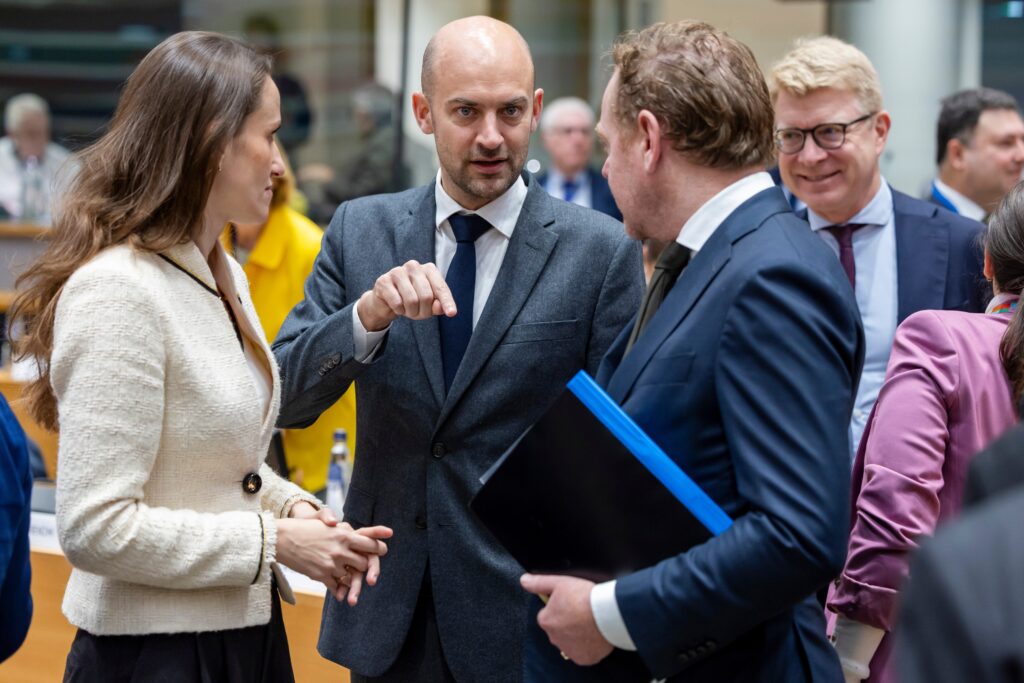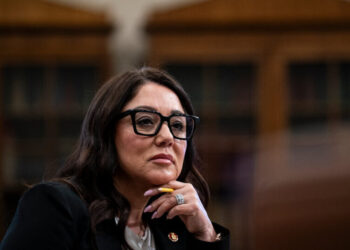LONDON — European and Ukrainian officials pushed back Thursday against a new plan being proposed by the U.S. administration to end the war in Ukraine, saying that any deal should respect Ukraine’s sovereignty and not involve the country’s “capitulation.”
Kyiv’s main European partners in particular said they should be involved in any proposals for the future security of Ukraine and Europe, and their remarks Thursday suggested they had not been consulted or even briefed on details of Washington’s plan. Ukrainian President Volodymyr Zelensky has not commented publicly since news of the plan leaked.
Special envoy Steve Witkoff is quietly pushing a plan that contains provisions which Ukraine has long opposed, including forcing it to cede strategically important territory not yet seized by Russia in the eastern Donbas area and agreeing to significant reductions in the size and effectiveness of its army, according to two people familiar with the negotiations.
“We want a just peace that respects everyone’s sovereignty, a durable peace that cannot be challenged by future aggression,” French Foreign Minister Jean-Noël Barrot told reporters. “But peace cannot be capitulation. We do not want the capitulation of Ukraine.”
He repeated European calls for an agreement to start with a ceasefire along the current line of contact, so that negotiations on territory and security guarantees can follow.
“We commend peace efforts but Europe is the main supporter of Ukraine, and it’s of course Europe’s security at stake, so we expect to be consulted,” Polish Foreign Minister Radoslaw Sikorski said Thursday.
Ukraine should not face restrictions on its ability to fight back, Sikorski said, adding that it was Russia “whose aggressive potential should be restricted.” Asked if any European officials were included in drafting the U.S. plan, he said, “Not to my knowledge.”
An adviser to the Ukrainian president, Mykhailo Podolyak, said the plan amounted to no more than Ukraine’s “unconditional capitulation,” while a senior Ukrainian MP, Iryna Gerashchenko, slammed the leaked peace proposal as representing an effort to test whether Ukraine is ready to submit.
“Russia is not offering a diplomatic settlement; it is offering Ukraine unconditional capitulation,” Podolyak said in a statement on X on Thursday. “There is no ‘conflict between two sides.’ There is a classic occupation, when a foreign army comes to kill the citizens of another state and take their property.”
News of the revised peace proposal follows a secretive meeting in Miami this past weekend between Witkoff and Zelensky’s top advisers, according to people familiar with the situation who like others spoke on the condition of anonymity to discuss the negotiations.
One of the people familiar with the situation said the plan involved conditions long pushed by Moscow that were unacceptable to Zelensky and would “represent a complete capitulation of Ukraine.”
The plan calls for reducing the size of Ukraine’s army by more than half, forcing Kyiv to cede all of the heavily fortified Donetsk region to Russia — an area that Moscow has not been able to capture in nearly four years of war — as well as banning Ukraine’s use of long-range weapons. It also ruled out the presence of foreign troops that Kyiv and its European backers have deemed critical to ensuring Russia is deterred from attacking again, according to another person familiar with the proposal.
It further involves recognizing Russia’s control of the territory it has illegally seized.
Kyiv has long feared any such arrangement, as it would give Moscow an upper hand territorially and militarily to eventually launch a new invasion on the remainder of a weakened Ukraine.
Throughout discussions this year, Kyiv has remained adamant that it will not cede land to Russia that it has not already seized militarily. Ukraine has instead suggested a ceasefire that pauses the war at its current front lines.
Even in that scenario, Ukraine has never suggested it would formally recognize its sovereign territory seized by Russia as Russian. Doing so would be seen as a major capitulation by Zelensky.
Kyiv has also insisted that its own military is its strongest security guarantee against Russia. To allow Moscow to dictate the size of its military would be seen by Ukrainians as a betrayal of the country’s independence.
Gerashchenko, the Ukrainian MP, said the leaked plan “completely duplicates Russia’s 2022 demands for capitulation.”
Zelensky has been weakened over the last weeks by a major corruption scandal that has ensnared several of his close associates, and — coupled with the exhausting pace of Russian military strikes and slow advances on the ground — could leave the Ukrainian leader with diminishing options as U.S. officials exert greater pressure on him to accept a deal to end the war.
But analysts said the darkening outlook could act to only strengthen Zelensky’s refusal to bow to Russian demands. “Domestic political challenges from the corruption case are unlikely to make Zelensky more amenable to Russian demands, as the public and military would strongly object, creating bigger problems for him, ” said Mujtaba Rahman, managing director for Europe at the Eurasia Group consultancy.
The European Union’s foreign policy chief, Kaja Kallas, said the bloc’s 27 foreign ministers would deliberate on news of Washington’s plan at a meeting in Brussels on Thursday.
“What we as Europeans have always supported is a long-lasting and just peace, and we welcome any efforts to achieve that,” she told reporters ahead of the meeting. But, she added, “for any plan to work, it needs Ukrainians and Europeans on board. This is very clear.”
“We haven’t heard of any concession from the Russian side,” Kallas said. “If Russia really wanted peace, it could have agreed to an unconditional ceasefire already some time ago.”
European nations have become Ukraine’s biggest providers of financial and military aid since the Trump administration scaled back U.S. support.
One of the people familiar with the negotiations said that the previous expectation had been that the U.S. administration would pressure Russia into negotiations in the spring, to give time for tough new sanctions imposed on Russia to bite deeper into its budget revenue, rather than during the winter when Russia has the upper hand militarily.
Francis reported from Brussels, O’Grady from Kyiv. Beatriz Rios in Brussels and Kostiantyn Khudov in Kyiv contributed to this report.
The post Ukraine and Europeans rebuke U.S. plan as ‘capitulation’ to Russia appeared first on Washington Post.




